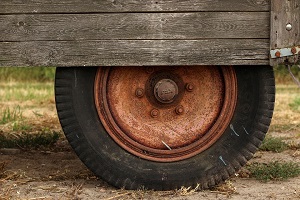Everything You Need to Know About Tire Recycling and Reuse

Have you ever thought about what happens to old tires once they've outlived their usefulness? Discarded tires are everywhere—from abandoned piles in landfills to shredded remnants scattered along highways. But there’s more to these worn-out tires than meets the eye. Instead of letting them pile up, consider recycling them at a nearby facility or get creative with some do-it-yourself projects. Keep reading to learn everything you need to know!
In the United States alone, around 300 million tires are discarded annually. This equates to roughly one tire per person each year. When tires end up in landfills, they attract pests like rodents and mosquitoes, which can spread disease. Since tires are made of synthetic rubber, they don’t break down naturally and can persist for hundreds—or even thousands—of years. Additionally, discarded tires pose a fire hazard because they trap methane gas, and such fires are notoriously hard to extinguish.
On a brighter note, old tires can serve as an alternative to fossil fuels. Through the recycling process, tires can be transformed into tire-derived fuel (TDF), which produces more energy than coal and is more efficient. A single tire contains approximately five gallons of oil, making it a valuable resource.
Repurposing old tires is another great option. Many inventive individuals have crafted useful items from their discarded tires. For instance, tires can be turned into garden planters, playground equipment, outdoor furniture, or even decorative ornaments. The synthetic material from tires is also ideal for constructing rubber-modified running tracks, artificial playing fields, and rubber-modified asphalt. However, research indicates that tires gradually release toxic chemicals into the environment over time when exposed to the elements. Therefore, it’s best not to grow edible plants in tires, but other applications should be safe.
Burning old tires is no longer an acceptable practice. While recycling might seem inconvenient, it’s our responsibility to ensure these materials are disposed of properly. After all, your tires will eventually reach the end of their life cycle. By taking care of your tires through regular inspections and rotations, you can minimize the frequency of replacements. Don’t forget to schedule a tire check-up with our skilled professionals to prolong the lifespan of your tires!
Why Is Tire Recycling Important?
In the United States alone, around 300 million tires are discarded annually. This equates to roughly one tire per person each year. When tires end up in landfills, they attract pests like rodents and mosquitoes, which can spread disease. Since tires are made of synthetic rubber, they don’t break down naturally and can persist for hundreds—or even thousands—of years. Additionally, discarded tires pose a fire hazard because they trap methane gas, and such fires are notoriously hard to extinguish.
On a brighter note, old tires can serve as an alternative to fossil fuels. Through the recycling process, tires can be transformed into tire-derived fuel (TDF), which produces more energy than coal and is more efficient. A single tire contains approximately five gallons of oil, making it a valuable resource.
Creative Ways to Repurpose Old Tires
Repurposing old tires is another great option. Many inventive individuals have crafted useful items from their discarded tires. For instance, tires can be turned into garden planters, playground equipment, outdoor furniture, or even decorative ornaments. The synthetic material from tires is also ideal for constructing rubber-modified running tracks, artificial playing fields, and rubber-modified asphalt. However, research indicates that tires gradually release toxic chemicals into the environment over time when exposed to the elements. Therefore, it’s best not to grow edible plants in tires, but other applications should be safe.
Reduce Tire Waste by Maintaining Your Tires
Burning old tires is no longer an acceptable practice. While recycling might seem inconvenient, it’s our responsibility to ensure these materials are disposed of properly. After all, your tires will eventually reach the end of their life cycle. By taking care of your tires through regular inspections and rotations, you can minimize the frequency of replacements. Don’t forget to schedule a tire check-up with our skilled professionals to prolong the lifespan of your tires!
Book a tire service appointment online today!
C9 Petroleum Resin,C9 Petroleum Resin For Coating,C9 Petroleum Resin For Rubber Industry,White Hydrogenated Petroleum Resin
Henan Hongze Environmental Protection Technology Co., Ltd , https://www.pampacyy.com
![<?echo $_SERVER['SERVER_NAME'];?>](/template/twentyseventeen/skin/images/header.jpg)